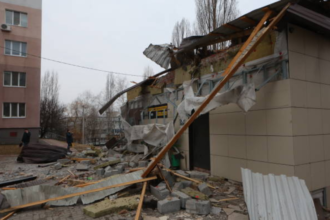Ukraine’s Foreign Minister Dmytro Kuleba ends his most recent diplomatic mission throughout Africa, and Kyiv may suffer diplomatic consequences from its participation in a significant loss suffered by the Russian mercenaries Wagner. An ambush at Tinzaouten on July 27 claimed 84 Wagner fighters and 47 Malian soldiers. Once under the direction of the late Yevgeny Prigzag and now under the authority of Russia’s defence command structure, Wagner suffered a major military hit from this incident.
The effect of the ambush was instant and notable. Recently renamed Corps Africa following integration into the Russian state military system, the Russian mercenary company has seen its personnel quadruple to about 2,000 men in Mali over the last two years
Ukrainian Involvement and Diplomatic Backlash
Two days following the incident, Andriy Yusov, a spokesperson for Ukraine’s military intelligence service (GUR), said that Ukraine had provided significant support to the Tuareg rebels in Mali, including instruction in the use of attack drones. “We supplied the required tools and data, allowing a successful operation against Russian war criminals,” Yusov said. This disclosure set off a turbulent debate and reaction.
The reaction was quick. The governing military junta of Mali cut diplomatic relations with Kyiv together with its partner Niger. The Economic Community of West African States (ECOWAS), the regional group, strongly criticized any foreign meddling endangering reg that would threaten security. “We firmly disapprove of any outside interference in the region that could jeopardize peace and stability,” said ECOWAS, reflecting great annoyance.
Reports implying that Islamic militants may have taken part in the Tinzaouaten attack alongside Tuareg rebels added to the fury. Additionally, the Senegalese foreign ministry called the Ukrainian embassy in Dakar to object after he uploaded a Facebook video of Yusov’s remarks. This caused more diplomatic friction.
Ukraine's Diplomatic Efforts in Africa
Kuleba was touring Malawi, Zambia, and Mauritius diplomatically during the same time. Still, the harsh responses from Senegal and ECOWAS might hinder his attempts at reconciliation. These incidents might compromise Ukraine’s recent achievements in strengthening diplomatic relations with Africa.
Though the military triumph against Wagner marks success, there are more general diplomatic consequences. African countries, particularly those with private doubts about Moscow, might see Kyiv’s efforts as predatory. From this vantage point, the goodwill Ukraine has worked so hard to create over the past two years might be undermined.
The government of Ukrainian President Volodymyr Zelensky is aware that the struggle against Russia has reached the sphere of diplomacy and economics as well as on the battlefield. “Our fight is in the courtrooms of global opinion as much as on the front lines,” a Ukrainian official said. Only 28 of 54 African member nations voted to condemn Russia’s invasion in the UN General Assembly on March 2, 2022. Therefore, this lesson became even more relevant. Reflecting their convoluted diplomatic stances, several African states remained silent or neutral.
Expanding Diplomatic Outreach
Ukraine is responding to these difficulties by strengthening its diplomatic activities throughout Africa. Kuleba has undertaken four trips throughout Africa to deepen relationships and create alliances. Among notable achievements are Zambia’s signing of the final communiqué and attendance at the Ukraine Peace Summit in Switzerland. Kuleba was kindly welcomed in Lusaka last week by Zambian President Hakainde Hichilema.
Ukraine aims to expand its diplomatic network to 20 embassy presences across Africa from its present eight. In April, Ukraine built a new embassy on the Ivory Coast, and more diplomatic posts were suggested. Beyond diplomacy, Kyiv intends to improve development assistance, commerce, and educational possibilities for African students; Ukraine’s “Grain from Ukraine” food aid program has assisted eight sub-Saharan nations.
Notwithstanding these initiatives, the divisive military operations against Wagner might compromise Ukraine’s general diplomatic and commercial objectives in Africa. One official Ukrainian said, “We must be cautious with our military engagements to ensure they do not shadow our diplomatic achievements.”
In essence, even while Ukraine’s participation in the Wagner defeat marks a notable military achievement, the political consequences highlight the difficulty of juggling military operations with foreign policy. Now, Kyiv’s job is to negotiate this sensitive scenario and to mend any harm to its diplomatic initiatives throughout Africa.








